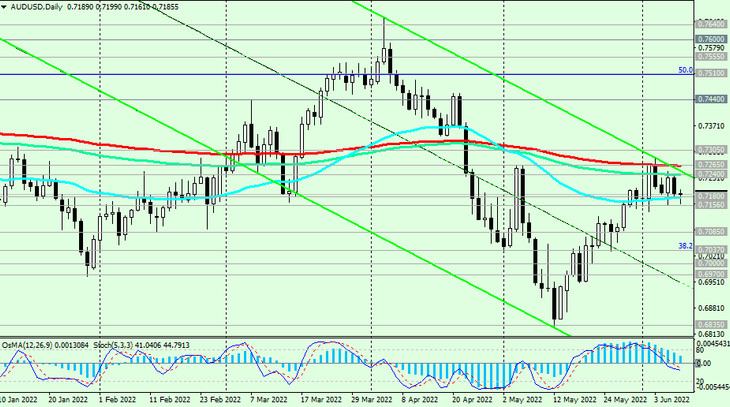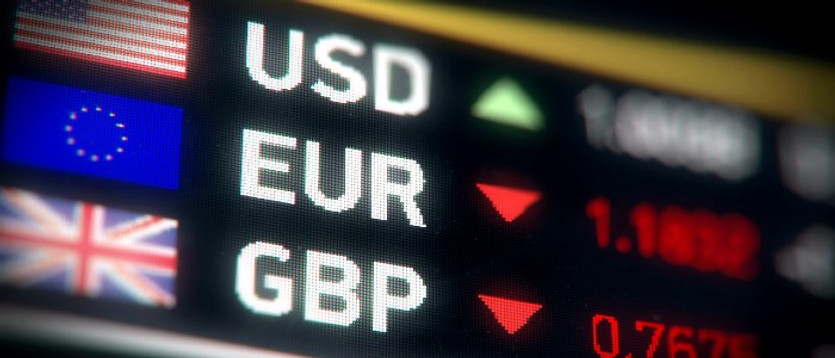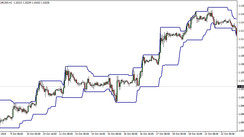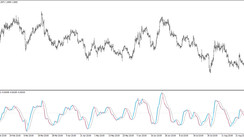Today, on the eve of the publication of the ECB decision on interest rates, market participants are cautious. Quotes of currencies and currency pairs move in narrow ranges. ECB leaders are widely expected to refrain from making changes to the bank's current monetary policy parameters at this meeting for the time being. Most likely, the key interest rate will remain at the same level of 0%, and the rate on deposits for commercial banks - at -0.5%.
At the same time, investors are ready for unexpected decisions. As the head of the ECB, Christine Lagarde, at one of the events of the World Economic Forum in Davos in May, interest rates could turn positive at the end of the third quarter. In her opinion, the ECB may raise its key interest rate in July (for the first time in 11 years) to reduce the risks of record high inflation and ease growing concerns about the weakness of the euro. “It is likely that we (at the ECB) will be able to put negative rates behind us by the end of the third quarter,” Lagarde said, also confirming that the APP (Quantitative Easing Emergency Program) program will end at the very beginning of the third quarter, and “if inflation stabilizes at around 2 % over the medium term, a gradual further normalization towards a neutral rate would be appropriate. The ECB will take all necessary steps to this end.”
The euro strengthened, and the EUR/USD pair rose in May after Lagarde's statements. This was also facilitated by positive macro statistics coming recently from the Eurozone.
Thus, the previously published Purchasing Managers' Index (PMI) for the manufacturing and service sectors continued to point to strong growth. Despite the relative decline, the Eurozone PMI stands well above the 50 mark separating growth from slowdown in business activity: the preliminary PMI for manufacturing in May fell to 54.4 from 55.5 in April, and the index for the services sector - to 56, 3 from 57.7.
As Eurostat reported yesterday, Eurozone GDP grew in the 1st quarter of 2022 by +0.6% (+5.4% in annual terms) against +0.3% (+5.1% in annual terms) in the 4th quarter of 2021.
At the same time, inflation was very high in the region. For example, annual inflation growth in April was +8.1%, which increases the pressure on the leaders of the ECB in the direction of a move to tighten monetary policy. Today, the ECB may also announce a complete end to the asset purchase program.
The ECB's decision on interest rates will be published at 11:45 (GMT), and during a press conference starting at 12:30 (GMT), Christine Lagarde will explain the bank's decision. Even if experts' forecasts that the rate will not be raised today come true, new tough statements from Lagarde about the need to soon move to tightening the ECB's policy will cause the euro to rise.
Conversely, the soft tone of statements and the propensity to continue the soft policy of the ECB, which remains one of the softest among the world's largest central banks, will have a negative impact on the euro. In this case, EUR/USD risks falling to the levels of 5 years ago and to the level 1.0500.
In the meantime, EUR/USD is traded in a narrow range around today's opening price and 1.0715 mark. A break of yesterday's low 1.0672 and high 1.0748 is likely to be the starting point for EUR/USD to move lower or higher.
Moreover, in our opinion, the dynamics of the entire financial market, primarily against the dollar, depends on the ECB's decision today.
Strange as it may seem, the decision taken last Tuesday by the RB of Australia to raise the interest rate, moreover, above the expectations of economists, at once by 0.50% (up to 0.85%), did not lead to a significant strengthening of the Australian dollar and the growth of the AUD / USD.
In response to this decision by the RBA, the AUD/USD jumped 70 points at the moment, to an intraday high and 0.7247 mark, however, ended the trading day at 0.7230 mark. Yesterday AUD/USD was declining, ending the trading day at 0.7190 mark. Today the price is moving in a narrow range. At the time of publication of this article, AUD/USD is close to 0.7186 mark.

If the ECB's decision is soft, then, as we assumed, it may have a negative impact not only on the quotes of the euro and the EUR/USD pair, but also on all dollar currency pairs, including AUD/USD. Conversely, tough comments or a decision by the ECB regarding the bank's monetary policy will cause a sharp increase in market volatility and a weakening of the dollar, including in the AUD/USD pair.





